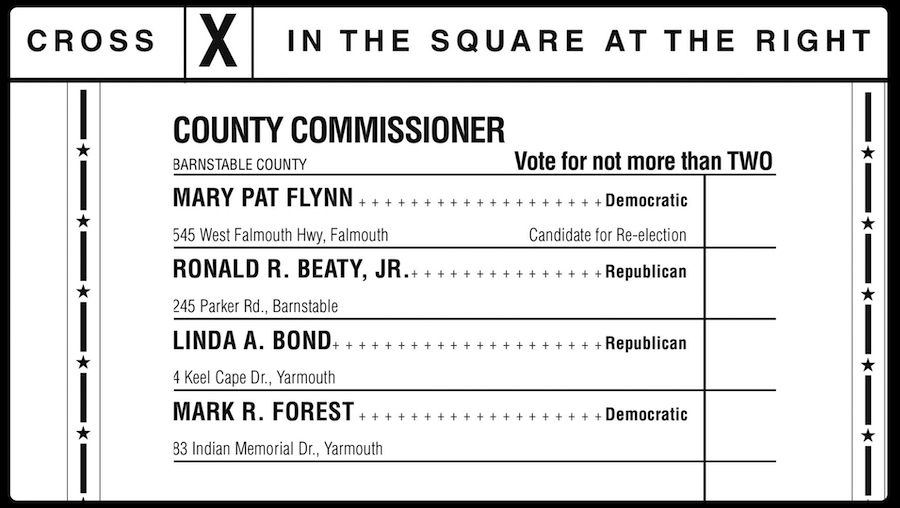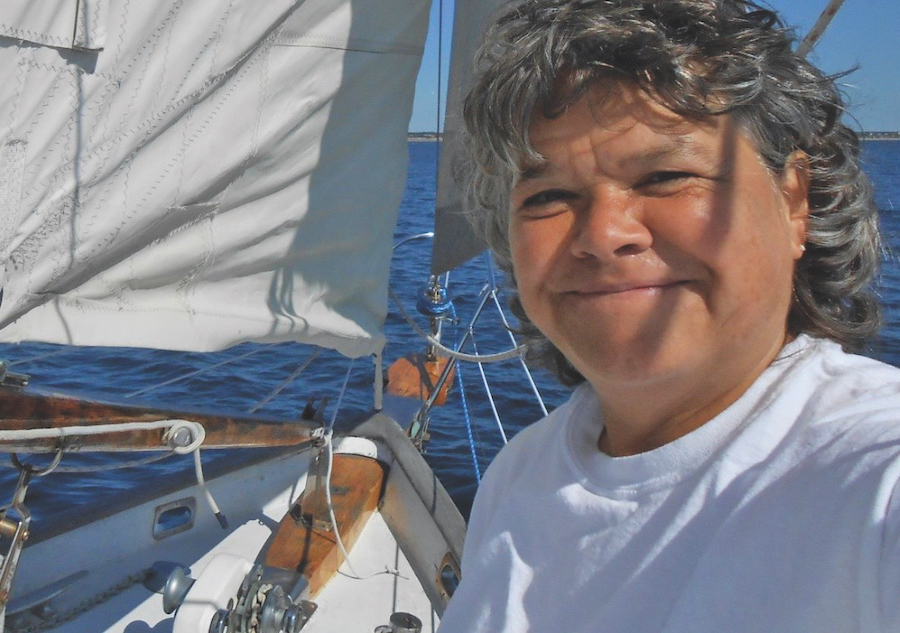PROVINCETOWN — Cheryl Andrews, a veteran elected official in Provincetown, is the first challenger to declare her candidacy for the Barnstable County Commission race this fall. The commission is the three-person executive branch of county government and writes the county’s budget, among other powers. There are currently two Democrats and one Republican on the commission. Two of the three seats are up for election in November.
Voters will be instructed to “pick two” candidates, which means there will be two Democrats on the November ballot, two Republicans, and possibly some independents. The top two vote-getters win the two seats.

This type of election can lead to voter confusion, with a significant number picking only one candidate. Voting for only one person can be a strategic choice, but the options are often misunderstood, and Andrews hopes to campaign very specifically on a “pick two” ticket with another Democrat.
Andrews has never run countywide, but she has been elected nine times in Provincetown. She was elected twice to be Provincetown’s representative on the Barnstable County Assembly of Delegates, twice to the Provincetown Housing Authority, and five times to the select board. She also lost one election for select board, in 2019. That was also a “pick two” election, but in that case three people ran for two seats, without any party labels.
In the upcoming race for commissioner, there will be a primary election on Sept. 1, in which all the Democrats running will be winnowed down to two, and the same for the Republicans. Afterward, Andrews told the Independent, the two Democrats can spend the months of September and October campaigning together and asking voters to pick both on the November ballot.
Why the County Commission?

“I learned while serving on the county assembly that the commissioners, the executive branch, are very powerful compared to the assembly,” said Andrews. “They have the power to write the budget, and even if the assembly votes it down, the commissioners can just vote to send it back. Then it takes two-thirds of the assembly to veto it. In the 30 years since the charter was written, the assembly has never been able to get two-thirds to veto. The effect of that arrangement is that the budget the commissioners write is pretty much the budget that we get.”
The Barnstable County budget is about $29 million a year. It supports a variety of regional programs that are considered too unwieldy for individual towns to attempt alone, such as fire and police training, dredging, water quality testing, and insect control.
Andrews added that the county depends largely on real estate transfer taxes for its revenue, and that she would like to find ways to make that income stream more sustainable and resilient against ups and downs in the real estate market. She also wants to orient county programs to face more directly the challenge of climate change.
Andrews cited the effort to build Provincetown’s sewer system as an example of her style of problem-solving. “That project was complex and lengthy,” she said, “but by focusing on the details and developing consensus, we were able to make a fair proposal that was accepted, that worked, and that has been used as a model by other towns on the Cape.”
The First Challenger
The two seats that are up for election in November are currently held by Ron Beaty of Barnstable, a Republican, and Mary Pat Flynn of Falmouth, a Democrat. Beaty has already declared that he is running for re-election; Flynn has not declared her intentions.
The third seat is not up for election until 2022; it is held by Ron Bergstrom of Chatham, also a Democrat. He unseated Leo Cakounes of Harwich, a Republican, in the 2018 election, ending two years of Republican control of the commission.
For a candidate to appear on the primary ballot requires 500 signatures, which must be turned in for certification by April 28. There is no official beginning date for the campaign season, according to the Mass. Secretary of State’s office, but candidates who wish to raise and spend money legally must open an expenditure committee. Besides the incumbents, only Andrews has opened an expenditure committee for the commissioner’s race with the state’s Office of Campaign and Political Finance, so for the time being, she is the only official challenger. Each party will ultimately want to field at least two candidates for the election, so more people will likely be joining Andrews in the race soon.



